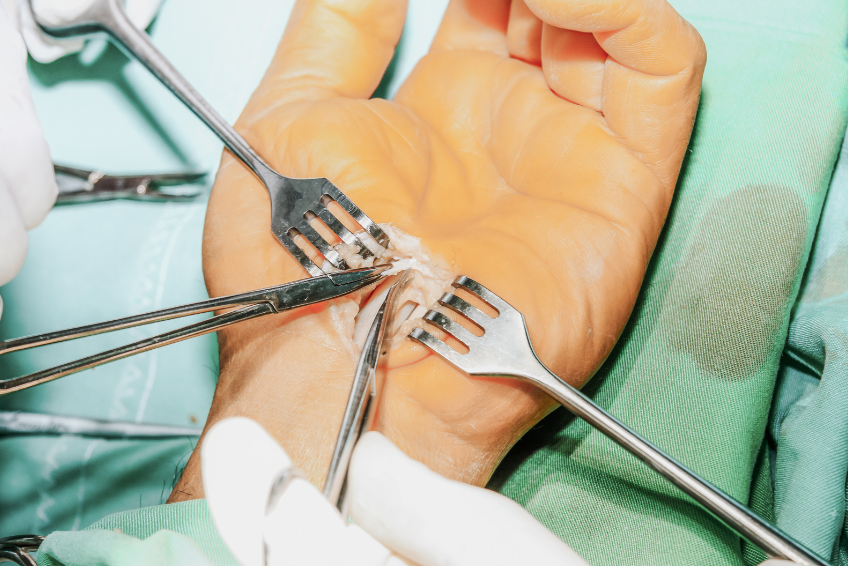Hand surgery can be a transformative procedure, helping individuals regain function, alleviate pain, and improve their quality of life. Whether due to trauma, repetitive strain injuries, or chronic conditions like arthritis, hand surgery is often the key to a better life. In this blog, we provide insights from a leading hand surgery doctor, offering a detailed look at what to expect before, during, and after your procedure.
Understanding the Need for Hand Surgery
Hand surgery is often necessary when conservative treatments, like physical therapy or medications, fail to provide relief. Common reasons for surgery include traumatic injuries such as fractures, tendon or ligament tears, carpal tunnel syndrome, and arthritis. A hand surgery doctor will assess your condition thoroughly to determine whether surgery is required or if non-invasive treatments can resolve the issue.
In some cases, surgeries are performed to correct congenital issues, such as webbed fingers or other birth defects. For these conditions, a hand surgery doctor aims to restore function and improve the patient’s ability to perform everyday tasks. Understanding the specific reasons for surgery can help set expectations for the type of procedure and the recovery involved.
Pre-Surgery Expectations: What You Need to Know
Before undergoing surgery, a hand surgery doctor will schedule a consultation to evaluate your condition. This may include a physical examination, diagnostic tests, and imaging, such as X-rays or MRIs. The doctor will discuss the surgical options, explaining the benefits and risks of each procedure, so you can make an informed decision.
In preparation for surgery, your hand surgery doctor will advise you on necessary lifestyle changes. This may involve stopping certain medications, adjusting your diet, or fasting before the procedure. Additionally, you may need to arrange for someone to assist with transportation and care after the surgery, as you may not be able to drive or use your hand immediately afterward.
The Surgical Procedure: What Happens During Hand Surgery
During hand surgery, the approach taken will depend on the specific condition being treated. A hand surgery doctor may opt for minimally invasive techniques, which use small incisions and specialized instruments to perform the surgery with minimal disruption to the surrounding tissues. For more complex cases, open surgery may be required.
Anesthesia is an essential part of hand surgery, and your doctor will discuss the options available, including local anesthesia (numbing only the hand) or general anesthesia (making you sleep throughout the procedure). The hand surgery doctor will ensure that the anesthesia used is appropriate for the procedure and your medical history, so you feel as comfortable and safe as possible.
Throughout the surgery, the hand surgery doctor will work to repair or replace damaged tissues, bones, or joints. Depending on the procedure, this may involve stabilizing bones with pins, plates, or screws, or releasing compressed nerves in the case of conditions like carpal tunnel syndrome. The doctor will ensure that the surgical area is as minimally invasive as possible to promote faster recovery and reduce the risk of complications.
Recovery Process: What to Expect After Hand Surgery
After hand surgery, recovery is a critical phase, and your hand surgery doctor will guide you through every step. Immediately after the surgery, you will be moved to a recovery room, where your condition will be monitored as the anesthesia wears off. Pain management will be a priority, and your doctor will provide prescriptions for medication or recommend over-the-counter options to ensure comfort.
Rehabilitation plays a vital role in recovery. A hand surgery doctor will recommend physical therapy to restore movement, strength, and flexibility to your hand. This may include exercises to improve range of motion, strengthen muscles, and reduce swelling. Your doctor will work closely with you to monitor progress and adjust the recovery plan as needed.
While the recovery timeline varies based on the complexity of the surgery, most patients begin to see improvement within weeks, with full recovery taking several months. Following the doctor’s guidance on rest, rehabilitation, and any lifestyle adjustments will help you achieve the best possible outcome.
Potential Risks and Complications
Like any surgical procedure, hand surgery carries certain risks. A leading hand surgery doctor will take every precaution to minimize these risks, but it’s essential to be aware of potential complications, including infection, blood clots, nerve damage, or stiffness. Your doctor will discuss these risks during your consultation, ensuring you understand the measures in place to prevent or manage complications.
To reduce the risk of infection, the hand surgery doctor will follow strict sterilization protocols during the procedure. After surgery, you’ll need to keep the surgical site clean and follow your doctor’s instructions on dressing changes and wound care. If you notice any unusual symptoms, such as increased redness, swelling, or fever, it’s essential to contact your doctor immediately.
Post-Surgery Lifestyle Adjustments
After hand surgery, certain lifestyle adjustments may be necessary to promote healing and avoid stressing the operated area. Your hand surgery doctor will guide you on what activities are safe to resume and when. Initially, heavy lifting and high-impact activities should be avoided to prevent damage to the surgical site.
Depending on the procedure, you may need to wear a splint or cast to protect your hand during the recovery period. Your doctor will advise you on when to remove these supports and how to gradually ease back into regular activities, including work and exercise.
In some cases, dietary changes may be recommended to support healing, such as consuming foods rich in vitamins C and D, which help with tissue repair. It’s crucial to follow these recommendations to ensure optimal recovery.
Long-Term Outcomes and Success Rates
The outcomes of hand surgery are generally positive, with many patients experiencing significant improvements in hand function and pain relief. A hand surgery doctor will provide you with information about the typical success rates for the procedure you’re undergoing. The success of the surgery depends on various factors, including the severity of the condition, your overall health, and how well you follow your doctor’s recovery plan.
For many patients, surgery can restore full hand function, allowing them to return to work, sports, and everyday activities. However, the results can vary, and it’s essential to have realistic expectations. Your doctor will work with you throughout the recovery process, making adjustments as needed to ensure the best possible outcome.
A Smooth Recovery Awaits
Hand surgery can be a life-changing procedure, offering relief from pain and restoring hand function. By understanding what to expect before, during, and after surgery, you can prepare for the process and ensure a smoother recovery. With the expert guidance of a leading hand surgery doctor, you’ll be well-equipped to navigate the journey toward healing.
Remember, every patient’s experience is unique, and your hand surgery doctor will be there to support you every step of the way. If you’re considering hand surgery, schedule a consultation with a skilled hand surgery doctor to discuss your options and create a plan tailored to your needs.




